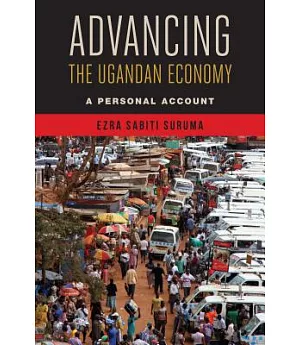Within a climate of stability post Idi Amin and prime minister Milton Obote, Uganda achieved remarkable economic growth from 1986 to 2012. This volume is Suruma’s account of the nation’s
post-independence history, his involvement in key policy changes making this success possible, and an exploration of the areas still requiring reform if Uganda is to achieve lasting political
stability and economic growth. The story begins with the coming to power of the National Resistance Movement (NRM) and the issuance of its ten-point program. It then proceeds through an
exploration of the following areas within a commitment to democracy, stability and entrepreneurialism: the reformation of foreign exchange, the financial sector and the Bank of Uganda; the
establishment of microfinance institutions; pension reform and the establishment of social security; the pursuit of strategies for rural development; revitalization of the agricultural sector
with a specific focus on tea production and the export of coffee; the handling of foreign aid; East African integration; job creation through government subsidization of housing construction;
and issues associated with the growth of private enterprise. A special chapter is also devoted to the promises and perils of reliance on oil exports. A key recommendation is to focus on the
parish, a smaller unit than the subcounty or district, as the new unit of development. This is reflected in an appendix outlining the Parish Model Operational Plan. Annotation ©2014 Ringgold,
Inc., Portland, OR (protoview.com)





















